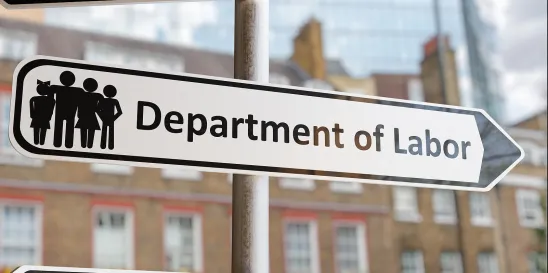On September 25, 2023, the U.S. Court of Appeals for the Eleventh Circuit affirmed the Department of Labor’s Administrative Review Board’s rejection of an employee’s Sarbanes–Oxley Act (SOX) retaliation claim, holding the employee did not engage in protected activity because he failed to establish that he had an objective, reasonable belief that the employer engaged in conduct that violated SOX. Ronnie v. Office Depot, LLC, No. 20-14214.
Background
Petitioner was a senior financial analyst responsible for, among other things, ensuring data integrity. He identified two potential accounting errors that he claimed signaled securities fraud relating to an internal metric over which he had responsibility, “Sales Lift,” which was designed to quantify the cost-reduction benefit of closing redundant Office Depot stores. Petitioner reported both errors to his supervisors, fixed the first issue, and recommended his supervisors correct the second issue immediately. They stated, however, that they would not correct the second issue without understanding its root cause and asked Petitioner to investigate.
After he reported the errors, Petitioner alleged that his supervisor treated him differently and he emailed human resources to report alleged retaliation. Although Petitioner was asked multiple times to investigate and report the cause of the second issue, the record reflected that over a month passed without him identifying the cause. His supervisor issued him a final warning for the failure to determine the cause and he was ultimately terminated for that reason.
After the Occupational Safety and Health Administration dismissed Petitioner’s complaint, an administrative law judge granted summary judgment to the employer on the basis that Petitioner failed to establish an objectively reasonable belief that any of the statutes or rules enumerated in SOX were violated. After the Administrative Review Board affirmed that decision, Petitioner petitioned the Eleventh Circuit for review.
Ruling
The court denied the petition, explaining that the key issue was what evidence a SOX plaintiff must present to establish they “reasonably believed” their employer violated a rule or regulation identified by SOX. The court surveyed other federal appellate courts to have addressed this question, and followed the Second and Fourth Circuits in adopting a “totality of the circumstances test,” which requires a plaintiff to make some showing of scienter, materiality, reliance, or loss in order to enjoy SOX protection. Following inter alia Nielsen v. AECOM Tech. Corp., 762 F.3d 214, 221 n.6 (2d Cir. 2014) (see our post on Nielsen here). A SOX plaintiff therefore must put forth sufficient information about the alleged wrongful conduct to show that a reasonable person in their position would believe the wrongdoing amounted to a SOX violation. Although SOX plaintiffs need not articulate the specific provision of SOX they allege the employer violated, the court cautioned that mere speculation or suspicion is insufficient to establish reasonable belief. This approach contrasts with that of the Third and Sixth Circuits, which do not require SOX plaintiffs to show that they had an objectively reasonable belief of wrongdoing.
After reviewing the totality of the circumstances, the court held Petitioner failed to set forth sufficient evidence to support an inference that a reasonable person in his position would find his employer’s conduct violated SOX. The court found that Petitioner failed to sufficiently establish scienter, as he conceded in his deposition that he was not claiming the employer intentionally made the error. The court also found Petitioner failed to identify the materiality of the alleged data error.
Implications
This decision is valuable precedent for employers facing claims within the Second Circuit that turn on whether a plaintiff had a “reasonable belief” that their employer violated SOX. The Eleventh Circuit has now joined the Second and Fourth Circuits in adopting the totality of the circumstances test, which is a more rigorous standard than that followed by the Third and Sixth Circuits.




 />i
/>i

